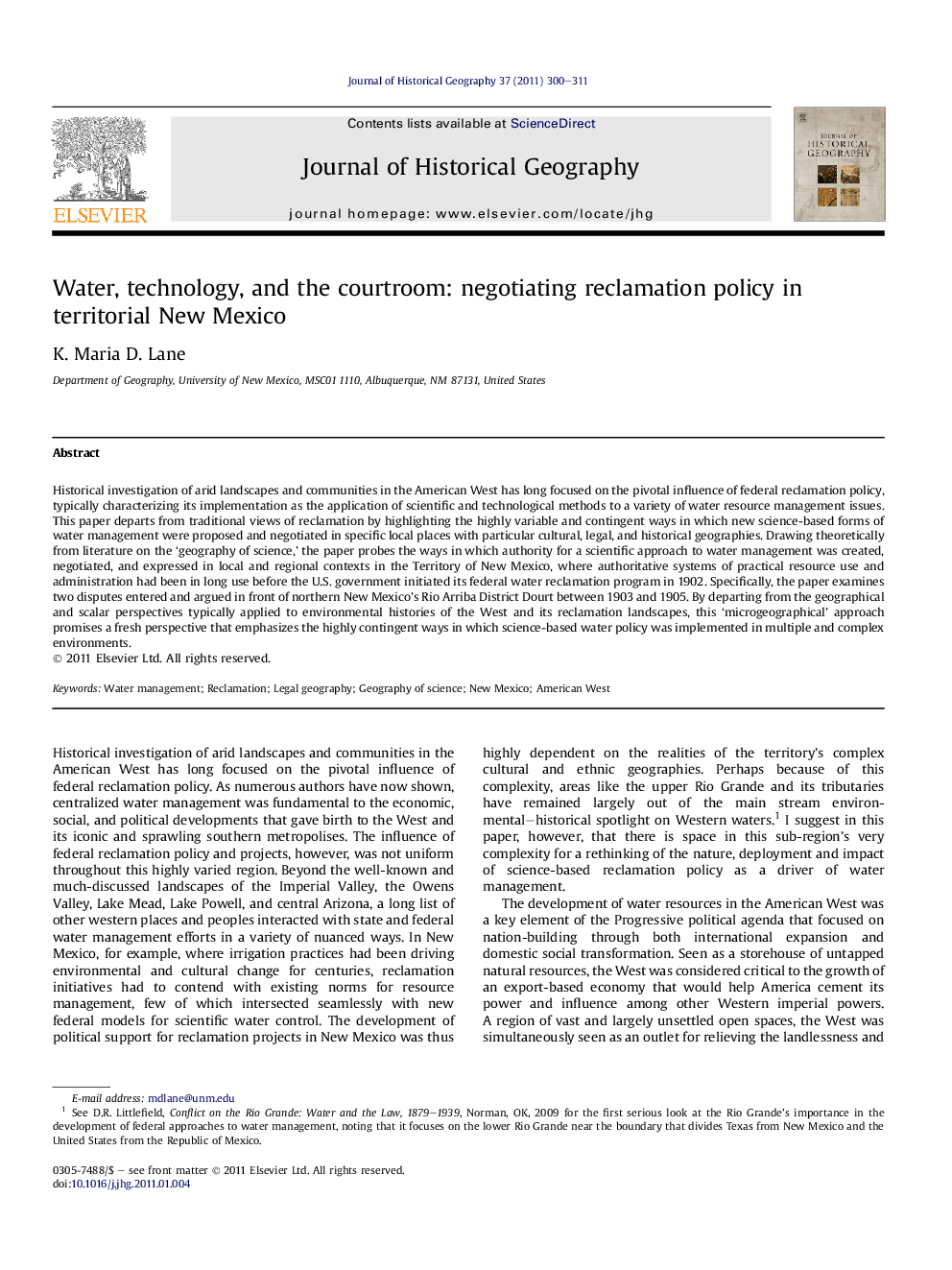| Article ID | Journal | Published Year | Pages | File Type |
|---|---|---|---|---|
| 1039449 | Journal of Historical Geography | 2011 | 12 Pages |
Historical investigation of arid landscapes and communities in the American West has long focused on the pivotal influence of federal reclamation policy, typically characterizing its implementation as the application of scientific and technological methods to a variety of water resource management issues. This paper departs from traditional views of reclamation by highlighting the highly variable and contingent ways in which new science-based forms of water management were proposed and negotiated in specific local places with particular cultural, legal, and historical geographies. Drawing theoretically from literature on the ‘geography of science,’ the paper probes the ways in which authority for a scientific approach to water management was created, negotiated, and expressed in local and regional contexts in the Territory of New Mexico, where authoritative systems of practical resource use and administration had been in long use before the U.S. government initiated its federal water reclamation program in 1902. Specifically, the paper examines two disputes entered and argued in front of northern New Mexico’s Rio Arriba District Dourt between 1903 and 1905. By departing from the geographical and scalar perspectives typically applied to environmental histories of the West and its reclamation landscapes, this ‘microgeographical’ approach promises a fresh perspective that emphasizes the highly contingent ways in which science-based water policy was implemented in multiple and complex environments.
